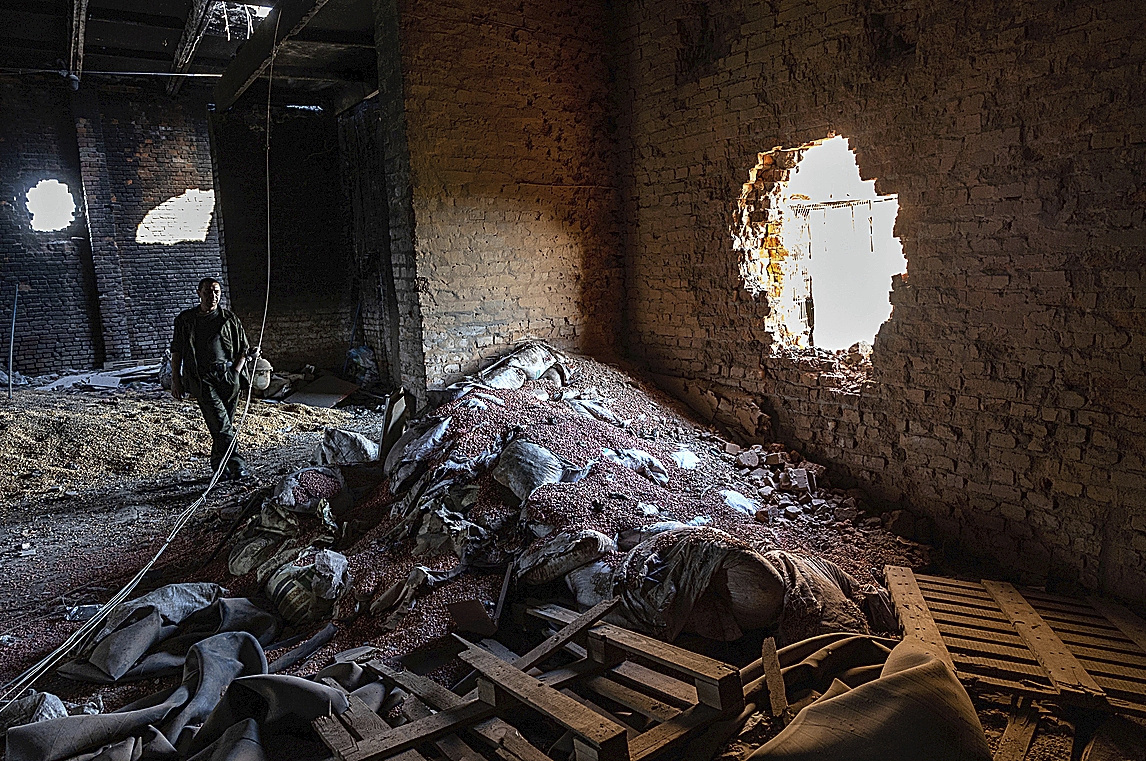The UN has given the alert for the serious impact that the war in Ukraine is having on the world food crisis. Ukraine is considered the “granary of Europe” and exports half of the world’s sunflower oil, 15% of corn and 12% of wheat, but its products have been blocked for more than three months in the ports of the Sea Black for the aggression of Russian troops.
“War is driving millions of people to the brink of food insecurity,” UN Secretary-General António Guterres has warned. “Mass hunger, malnutrition and rising prices can cause a crisis that can drag on for years.”
Guterres himself has admitted that he is in “intense contact” with Russia, Ukraine, Turkey and other countries seriously affected by the export blockade (especially in sub-Saharan Africa and the Middle East) to try to find a solution to “the complex security and economic and financial subsistence implications created by the current situation.
It is estimated that more than 20 million tons of grain are blocked in Odessa, Chornomorsk and other Black Sea ports by the siege of Russian warships. The situation has caused the global increase in the price of wheat by around 30% since the conflict began.
Countries like Egypt import more than 80% of Ukraine’s grain, which also exports large quantities to Turkey, Yemen, Libya, Lebanon and Iraq. The rise in the price of bread in the countries deprived of Ukrainian wheat threatens to provoke not only hunger, but also explosive social and political situations.
“Russia has launched the grain war and is causing a global crisis,” warned German Foreign Secretary Annalena Baerbock. “And she is doing it at a time when millions of people are threatened by hunger, primarily in the Middle East and Africa.”
“We are possibly facing the greatest food crisis of our time, caused by a war of “choice” in Ukraine,” warned US Secretary of State Antony Blinken, who has joined the emergency conference called by the UN In New York.
“There is enough food in the world to avoid a critical situation if we act now,” Secretary General António Guterres concluded. “But the only effective solution is to reintegrate production and export in Ukraine, as well as fertilizers produced by Russia and Belarus.”
Russia has conditioned, for its part, the release of Ukrainian ports to the lifting of economic sanctions against Moscow. “We have to look at the complex reasons behind the food crisis,” Russian Deputy Foreign Minister Andrei Rudenko warned. “It has been the sanctions against Russia by the United States and the EU that have interfered in the normal trade of food, fertilizers and other products”
The World Bank has joined the alert and announced on Thursday an aid package of 11.5 billion euros aimed at guaranteeing “food security” in the most vulnerable parts of the world, which raises the projects approved for the next 15 months.
After the Russian invasion, the Ukrainian government initially calculated that only 30% of the sowing of corn and wheat could be carried out in spring, although estimates have risen to 50%. Even so, the lack of fertilizers and the rise in fuel prices have made it even more difficult for this veritable rearguard army made up of Ukraine’s farmers.
“Sometimes it seems like an impossible mission, but we must continue working not only in the fields, but also fighting on the front lines and seeking international solutions for the most vulnerable populations,” warns Mariia Didukh, director of the Ukrainian National Agrarian Forum. “Last year we provided food to 400 million people: Russian troops have endangered food security in many parts of the world.”
Conforms to The Trust Project criteria
















